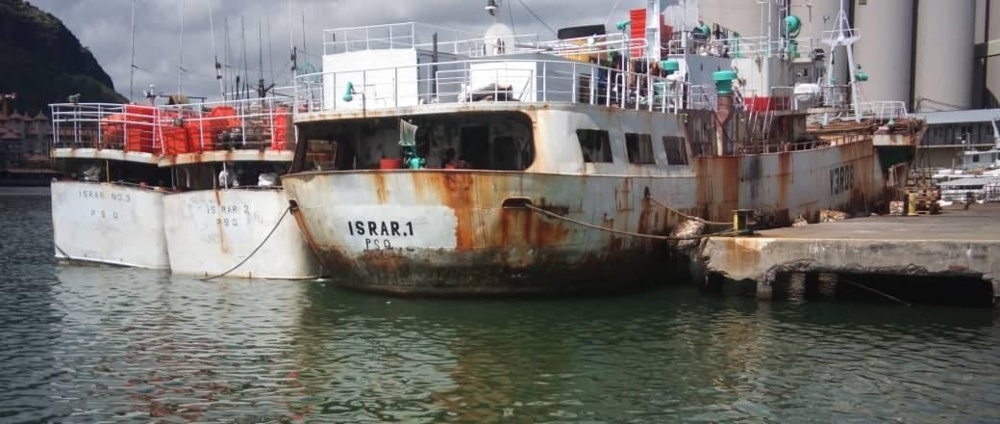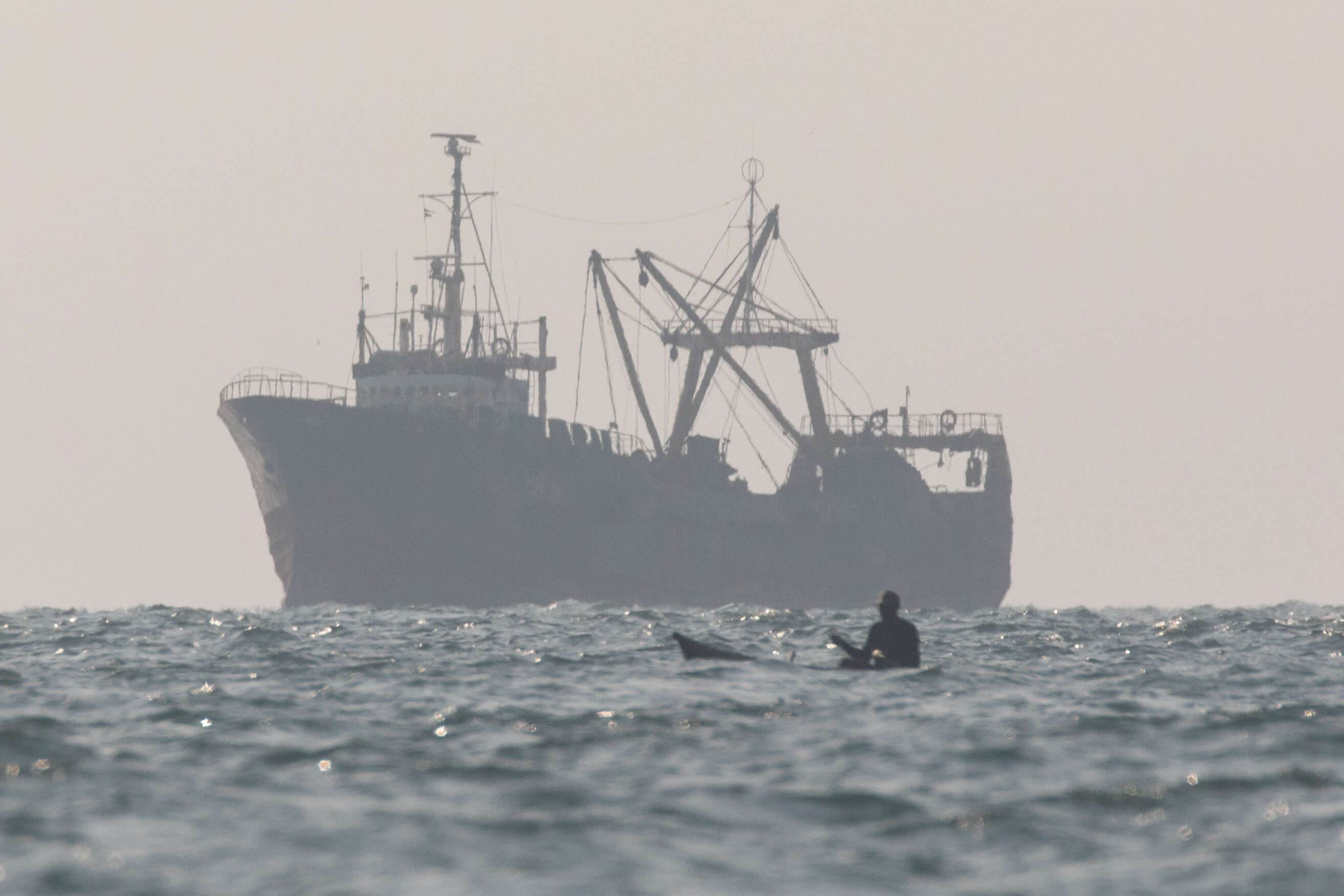
Illegal fishing fleet blacklisted, showing urgent need for transparency
A fleet of vessels that has done everything in its power to evade scrutiny of its illegal activities has been blacklisted by a key international body. An investigation by the Environmental Justice Foundation (EJF) – which involved satellite tracking, intelligence gathered from social media, and interviews with crew – has resulted in the vessels being blacklisted by the International Commission for the Conservation of Atlantic Tunas (ICCAT). The fleet’s insurance provider is also considering dropping their coverage.
While these actions are a win that could cripple the fleet’s operations, the real solution goes deeper, says EJF. This is textbook example of operators using the chronic lack of transparency in fisheries to perpetrate crimes and decimate ocean ecosystems, and that urgently needs to change.
The fleet – which had been operating in the Atlantic for years – first came to EJF’s attention as suspicious when satellite monitoring of the three vessels’ movements showed clear indication that they were long-lining for tuna, despite not being registered with ICCAT. Without this authorisation, any tuna fishing in the Atlantic is strictly prohibited.
As EJF continued to investigate the fleet, it found extensive evasive action to avoid any oversight of illegal actions. Not only did the vessels start off flying the flags of one nation, only to switch to another, there is also a good indication that they were ‘stateless’ for a time – registered to no country’s flag at all. The vessels also changed names, switching ID codes mid-voyage on the automatic identification system used by fishing vessels to prevent collision. EJF also obtained a photo clearly showing the bright white paint that had be used to rename the vessels.
The fleet also employed illegal transhipment – another classic method that illicit operators use to cover their tracks. Under this practice, vessels meet at sea to transfer catch, supplies or crew, and while this can occur legally if properly registered and monitored, it is often used by illegal operators to ‘launder’ fish caught illegally and perpetuate the abuse and enslavement of crew by enabling vessels to stay away from port for months or even years.
The blacklisting, which was proposed to ICCAT by the EU after they had seen the EJF evidence and investigated further, is a significant blow to this illicit network. If properly implemented, it means the vessels will lose market access for their products. Similarly, the fact that the insurance company has considered dropping the fleet puts the operators at severe financial risk.
Steve Trent, CEO of the Environmental Justice Foundation, said: “This operator used every trick in the book to evade scrutiny of its illegal actions. They changed vessel names, changed flags, went stateless, kept ownership unclear. Illegal transhipment can hide a multitude of sins, from illegal fishing that destroys ocean ecosystems to enslavement of crew. This is one fleet, and while I am very glad to see ICCAT taking this action, that is not the ultimate solution. To prevent others from perpetrating these illegal acts, to safeguard ocean ecosystems, food security and livelihoods around the world we need to shine a light onto all these operations through transparency: the publishing and sharing of information – such as vessel license lists, history of offenses, and full ownership details – which can help governments, regional fisheries management organisations, law-abiding fishing companies, NGOs, retailers and even consumers to work together to rid our oceans of these damaging operators. It is a cause for international shame that this chronic lack of transparency can still be used to commit these crimes.”
EJF is continuing to monitor the whereabouts of the fleet, and has evidence that it has shifted its operations from the Atlantic to the Indian Ocean, leaving the jurisdiction of ICCAT. While the vessels do have permission to fish in the Indian Ocean as a result of the switch to their new flag – Oman – early evidence suggests that they are continuing to use illegal trans-shipment, in breach of the rules of the Indian Ocean Tuna Commission.
Notes for editors
Key information
- During its annual meeting in November 2021, the ICCAT decided to add the three vessels to its IUU (illegal, unregulated, unreported fishing) Vessel List. This decision is a major blow to the vessels’ network as it means states must apply restrictive measures to prevent them from continuing to benefit from their activities. If properly implemented, the vessels will, inter alia, lose market access for their products.
- When under investigation by EJF the fleet was using ports like Dakar in Senegal and Port of Spain in Trinidad and Tobago.
- Key suspected illegal activities include:
- Fishing without being properly listed on the ICCAT record of vessels;
- Fishing in the waters of a coastal state without authorisation or in violation to that state’s laws and regulations;
- Fishing without nationality;
- Engaging in non-compliant trans-shipments at sea.
- After being informed of the case, the insurer engaged in a constructive dialogue with EJF about the risk of supporting illegal fishing activities. Should the insurer decide to reconsider its contract with the vessel, it could further complicate the vessels’ operations. Closing access to insurance is an important lever to force unscrupulous operators to reconsider whether to engage in illegal fishing activities and drive them towards compliance.
SIGN UP FOR OUR EMAILS AND STAY UP TO DATE WITH EJF

